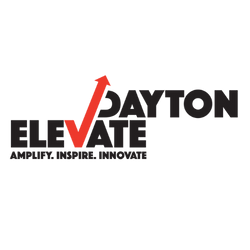Back To Profile
Written By Darius J. Beckham
I grew up in a quiet suburb of Dayton, Ohio. I rarely went downtown or into the surrounding neighborhoods, except to attend church on Sunday morning. After enrolling into the University of Dayton, however, things began to change. It was the first time in my life where I was constantly asked the question “Where are you from?” and the first time in my life where I constantly answered, “Dayton.” This response was more convenient than naming the suburb 20 minutes from campus in which I had spent the last twelve years of my life. Truthfully, I was unaware of the city and of this I could not be proud. Surprisingly, it wasn’t Dayton’s perceived inability to compete with Ohio’s other major cities, but the realization that I, myself, was an outsider. Not only was I stepping onto the University of Dayton’s campus, a predominantly white institution, as a black man, but I was doing it as a black man from metropolitan Dayton, with very little experience of the city itself. I was compelled to take a more active role in the Dayton community and as a freshman I joined a campus civic group focused on neighborhood outreach. I found my interactions with Dayton residents inspiring as well as educational and quickly developed a passion for community development.
The city of Dayton is undoubtedly not the industrial beacon it once was. In 1900, Dayton claimed more patents than any other U.S. city. In 1940, it was the 40th-largest city in the U.S. and home to a handful of Fortune 500 companies. It’s the birthplace of the airplane, the cash register, and the electric car starter, to name a few. Perhaps one might even call it the Silicon Valley of that time. However, major manufacturing companies have since moved overseas and across states causing Dayton to downsize in both its economy and population. Ubiquitous vacant housing and commercial property, low-performing public schools, and lack of access to healthy food in low-income areas are just some of the challenges facing Dayton today. It is truly difficult to envision a time in which local leaders grappled with the issues that accompany rapid growth as opposed to decline. Like most people my age I can certainly imagine a future beyond Dayton’s city limits. Furthermore, I am conscious of the fact that revitalization of this city will be a long, tenuous, and somewhat disheartening process. Yet, I am hopeful. It has always been in my nature to see the positive side, to identify potential, to be an optimist.
I am now a senior at the University of Dayton and currently work as an intern for the city in Planning and Community Development. In the few months that I have worked in this position I’ve made a constant effort to sit with the elders, people who will retire from the City of Dayton after forty years of service, people who have lived here their entire lives, raised families, paid taxes — people who witnessed at first hand Dayton’s gradual, inevitable fall from grace. Perhaps the most humbling experience has been listening to stories of how things used to be. I’ve gone into neighborhoods, schools, libraries, restaurants, recreation centers, churches — spoke with city officials, business owners, pastors, residents, and children. Their desires are all the same, a better city, a better place to live and work and go to school. Some move to the city of their dreams, others decide to build it where they are. It is difficult work — arduous, daunting, tiresome work, work that must go on even as staple businesses continue to close their doors, it is work that someone must do. As millennials we have been tasked to find our place in this world, I now believe I have found mine. The torch is being passed and I plan to take it and run. As stated by former Atlanta Mayor Kasim Reed, “Cities are where the action is.” In the same manner, there is clearly a lack of progress being made in Washington, in fact, it is fair to say that America has, as of late, regressed. In its attempts to adapt to the 21st century economy, Dayton is uniquely positioned to attain at least a gleam of its former glory.
As I write this, I can say that I am a proud Daytonian, not simply because Drake briefly mentions Dayton on his latest album, but because I believe there are brighter days ahead.
Please Login to Comment





